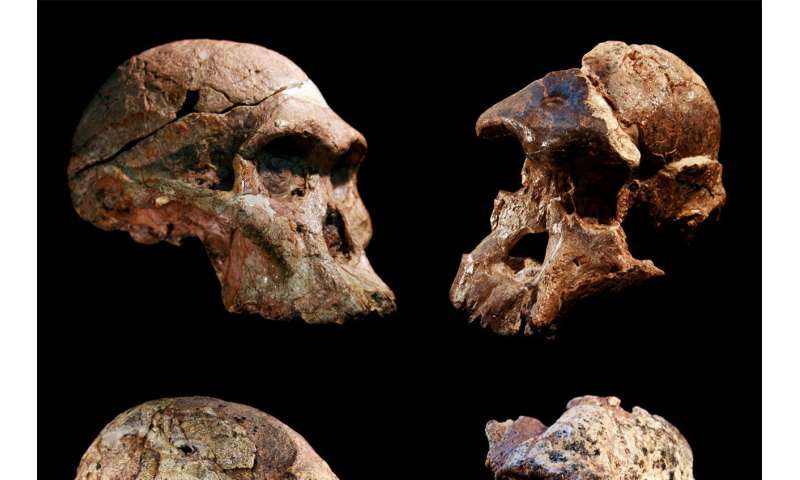Best of Last Week—Human fossils older than thought, cause of long COVID and monkeypox evolving faster than expected

It was a good week for Earth history research as a team of researchers using a newly developed dating method found evidence that some of the fossils found in the "Cradle of Humankind" in South Africa might be more than 1 million years older than thought. Also, a team with members from Uppsala University, the University of Oregon, Deutsches GeoForschungsZentrum and the University of Iceland found that the eruption of the Icelandic volcano Fagradalsfjall opened a rare window into the Earth beneath our feet. And an international team of researchers found evidence that dinosaurs took over amid ice, not warm weather, following the Triassic-Jurassic Extinction.
In technology news, a team at the Berlin Institute of Technology created a model that allowed robots to follow and guide humans in crowded environments. Also, a team at King Mongkut's University of Technology Thonburi in Thailand, developed an Android app capable of discerning how roasted a sample of coffee beans have become after cooking. And a team at the University of California, Irvine, developed a light, thin composite material capable of stretching to twice its normal size—called cephalopod skin, the material was found to work well as an insulator. And a group from the Chinese Academy of Sciences, the Yangtze River Delta Physics Research Center, HiNa Battery Technology Co., and the Tianmu Lake Institute of Advanced Energy Storage Technologies, developed a type of anode-free Na battery with high energy density and long cycle lifetimes.
In other news, a large team with members from several institutions in Canada and the U.S. used an innovative lung imaging technique to show that the cause of many long COVID symptoms is microscopic abnormalities resulting from viral damage that negatively impact how oxygen moves from the lungs to red blood cells. Also, a group at the University of Chicago developed an algorithm capable of predicting crime in a given area up to a week in advance—it also revealed a bias in the way police typically respond to crime calls. And finally, a team of researchers at the National Institute of Health Doutor Ricardo Jorge in Portugal, working with a colleague at Lusófona University, also in Portugal, found that the virus behind monkeypox has been evolving at a faster rate than expected.
© 2022 Science X Network